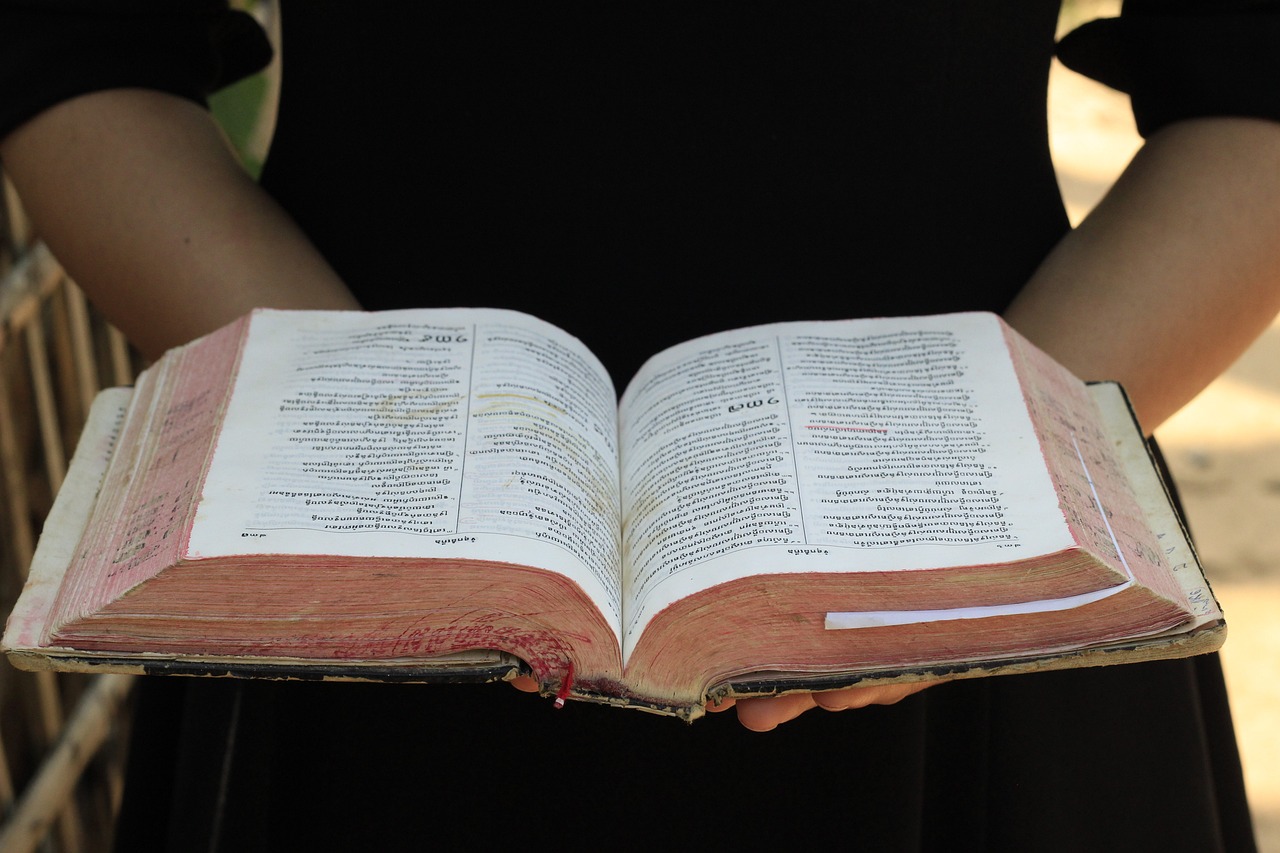Faithfulness is one of the most valued virtues in human relationships, spirituality, and personal integrity. It embodies loyalty, reliability, and unwavering commitment to a cause, person, or belief system. Whether in friendships, marriages, workplaces, or religious devotion, faithfulness fosters trust, stability, and growth. It is a principle that transcends cultures and traditions, influencing how people interact and uphold their responsibilities.
At its core, faithfulness is about consistency and dedication. It requires a steadfast heart that remains true despite challenges, temptations, or difficulties. A faithful person does not waver when circumstances become tough; rather, they remain committed to their values and promises. This virtue is often associated with honesty, dependability, and perseverance, making it a crucial element in building strong and lasting relationships.
In personal relationships, faithfulness ensures that bonds of love and trust are maintained. A faithful friend stands by another in times of joy and adversity. In romantic relationships and marriages, faithfulness means commitment and exclusivity, reinforcing the foundation of love and mutual respect. It is the assurance that one will not betray or abandon their partner, even in difficult times.
In professional settings, faithfulness is demonstrated through diligence, accountability, and reliability. Employees who are faithful to their responsibilities and organizations exhibit strong work ethics, earning the trust of employers and colleagues. Leaders who uphold faithfulness lead with integrity, ensuring that they do not compromise their principles for temporary gain.
Faithfulness also plays a significant role in spirituality and religious beliefs. Many faith traditions emphasize the importance of being faithful to God, religious teachings, and moral principles. It is seen as an expression of devotion and obedience, showing that one’s belief is not superficial but deeply rooted. Scriptures and religious texts across different traditions highlight faithfulness as a virtue that brings divine rewards and blessings.
The concept of faithfulness is also evident in nature and history. The changing seasons, the rising and setting of the sun, and the natural cycles of life reflect the faithfulness of creation. Throughout history, figures who have displayed faithfulness to their causes—whether in leadership, activism, or scientific pursuit—have left lasting legacies. Their dedication and persistence in the face of obstacles have shaped the world in profound ways.
However, faithfulness is not always easy to maintain. It requires self-discipline, sacrifice, and a strong sense of purpose. The modern world, with its fast-paced changes and distractions, often challenges people’s ability to remain faithful to commitments. Temptations, personal struggles, and societal pressures can make it difficult to stay true. Nevertheless, those who cultivate faithfulness reap its rewards—deep relationships, inner peace, and a reputation of trustworthiness.
In conclusion, faithfulness is a virtue that enriches both individuals and society. It is the glue that holds relationships together, the foundation of strong institutions, and the mark of true character. Whether in personal, professional, or spiritual aspects of life, faithfulness is a quality that leads to fulfillment and success. Upholding faithfulness requires conscious effort, but its benefits are invaluable, making it one of the most admirable traits a person can possess.
The Importance of Faithfulness
Faithfulness is a fundamental virtue that plays a crucial role in various aspects of life, including relationships, personal integrity, spirituality, and professional growth. It fosters trust, stability, and commitment, allowing individuals and communities to thrive. Below are some key reasons why faithfulness is important:
1. Builds Trust and Reliability
Faithfulness is the foundation of trust. Whether in friendships, marriages, workplaces, or religious beliefs, being faithful assures others that one can be relied upon. Trust takes time to build but can be destroyed quickly if faithfulness is lacking. When people are consistent in their actions and words, they establish a reputation for being dependable and trustworthy.
2. Strengthens Relationships
In relationships—whether romantic, familial, or platonic—faithfulness ensures longevity and deep connections. A faithful partner or friend remains loyal despite challenges, fostering emotional security and understanding. Marriages built on faithfulness experience love and stability, while friendships based on loyalty create strong bonds that endure over time.
3. Promotes Personal Integrity
Being faithful means staying true to one’s values, commitments, and principles. This integrity helps individuals make ethical decisions and stand by what is right, even when faced with temptations or difficulties. A person who is faithful to their beliefs and moral compass gains respect from others and develops a strong character.
4. Ensures Stability and Growth
Faithfulness brings stability in various areas of life. In business, loyal employees contribute to organizational success by being dedicated and responsible. In families, faithfulness nurtures love and a sense of belonging. In society, faithful leaders create environments where people feel secure and motivated to contribute positively.
5. Strengthens Spiritual Life
Many religious beliefs emphasize the importance of faithfulness to God and spiritual principles. A faithful person remains devoted to their faith, living according to its teachings. This commitment leads to spiritual growth, inner peace, and divine rewards. Faithfulness in spirituality also encourages discipline, patience, and moral uprightness.
6. Encourages Commitment and Perseverance
Life is full of challenges, but faithfulness helps individuals remain committed to their goals, relationships, and responsibilities. Whether in education, career, or personal growth, those who remain faithful to their dreams and efforts are more likely to succeed. Perseverance in the face of adversity often leads to great achievements.
7. Fosters Peace and Security
When people are faithful, there is less fear of betrayal, dishonesty, or abandonment. Faithfulness brings a sense of security to relationships, families, workplaces, and society at large. It creates an environment where people can trust and support one another without fear of deception.
8. Sets a Good Example for Others
Faithfulness is an admirable quality that inspires others. When someone consistently upholds their commitments and remains loyal, it encourages those around them to do the same. Whether in leadership, friendship, or marriage, faithfulness serves as a role model for others to follow.
9. Leads to Long-Term Success
In both personal and professional life, success is often a result of consistency and commitment. A faithful worker earns promotions and recognition. A faithful friend or spouse enjoys deep, meaningful relationships. Faithfulness ensures that one’s efforts are not wasted but yield long-term benefits.
10. Brings Fulfillment and Inner Peace
People who live faithfully experience a sense of fulfillment and inner peace. They do not live in fear of being exposed for dishonesty or betrayal. Instead, they carry a sense of purpose, knowing they have stayed true to their values, commitments, and relationships. This peace of mind leads to a happier and more content life.
Examples of God’s Faithfulness in the Bible
God’s faithfulness is one of His most remarkable attributes, demonstrated throughout the Bible. He consistently fulfills His promises, remains steadfast in His love, and never abandons His people. Here are some key examples of how God showed faithfulness in the Bible, along with supporting scriptures:
1. God’s Faithfulness to Noah
When the world was filled with wickedness, God decided to send a flood but preserved Noah and his family because of Noah’s righteousness. After the flood, God made a covenant with Noah, promising never to destroy the earth with water again. He sealed this promise with a rainbow.
Genesis 9:13-15
“I have set my rainbow in the clouds, and it will be the sign of the covenant between me and the earth. Whenever I bring clouds over the earth and the rainbow appears in the clouds, I will remember my covenant between me and you and all living creatures of every kind. Never again will the waters become a flood to destroy all life.”
2. God’s Faithfulness to Abraham
God promised Abraham that he would be the father of many nations, even though he and his wife Sarah were old and childless. Despite the delay, God remained faithful and fulfilled His promise by giving them a son, Isaac.
Genesis 21:1-2
“Now the Lord was gracious to Sarah as he had said, and the Lord did for Sarah what he had promised. Sarah became pregnant and bore a son to Abraham in his old age, at the very time God had promised him.”
Hebrews 10:23
“Let us hold unswervingly to the hope we profess, for he who promised is faithful.”
3. God’s Faithfulness to the Israelites in Egypt
God promised Abraham that his descendants would become a great nation, but they ended up as slaves in Egypt. Even so, God remained faithful and delivered them through Moses, leading them to the Promised Land.
Exodus 14:21-22
“Then Moses stretched out his hand over the sea, and all that night the Lord drove the sea back with a strong east wind and turned it into dry land. The waters were divided, and the Israelites went through the sea on dry ground, with a wall of water on their right and on their left.”
Deuteronomy 7:9
“Know therefore that the Lord your God is God; he is the faithful God, keeping his covenant of love to a thousand generations of those who love him and keep his commandments.”
4. God’s Faithfulness to Joseph
Despite being sold into slavery by his brothers and facing many hardships, Joseph remained faithful to God. In return, God remained faithful to him, elevating him to a position of power in Egypt and using him to save his family and many others from famine.
Genesis 50:20
“You intended to harm me, but God intended it for good to accomplish what is now being done, the saving of many lives.”
5. God’s Faithfulness to David
God promised David that his throne would be established forever. Even though David faced challenges, including battles and personal failures, God remained faithful to His covenant, which was ultimately fulfilled through Jesus Christ, who came from David’s lineage.
2 Samuel 7:16
“Your house and your kingdom will endure forever before me; your throne will be established forever.”
Psalm 89:1-2
“I will sing of the Lord’s great love forever; with my mouth, I will make your faithfulness known through all generations. I will declare that your love stands firm forever, that you have established your faithfulness in heaven itself.”
6. God’s Faithfulness in Providing for His People
When the Israelites wandered in the wilderness for 40 years, God remained faithful by providing them with manna, water, and protection. Even though they often complained and disobeyed, God did not abandon them.
Exodus 16:35
“The Israelites ate manna forty years, until they came to a land that was settled; they ate manna until they reached the border of Canaan.”
Lamentations 3:22-23
“Because of the Lord’s great love we are not consumed, for his compassions never fail. They are new every morning; great is your faithfulness.”
7. God’s Faithfulness in Sending Jesus Christ
The greatest act of God’s faithfulness was sending His Son, Jesus Christ, to fulfill His promise of salvation. From the beginning, God had promised a Messiah to redeem humanity, and He fulfilled that promise in Jesus.
John 3:16
“For God so loved the world that he gave his one and only Son, that whoever believes in him shall not perish but have eternal life.”
2 Timothy 2:13
“If we are faithless, he remains faithful, for he cannot disown himself.”
8. God’s Faithfulness to Believers Today
God continues to be faithful to those who trust in Him. He promises to never leave us, to forgive our sins, and to grant us eternal life through faith in Jesus Christ.
1 Corinthians 1:9
“God is faithful, who has called you into fellowship with his Son, Jesus Christ our Lord.”
Hebrews 13:5
“Never will I leave you; never will I forsake you.”







